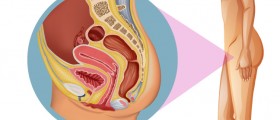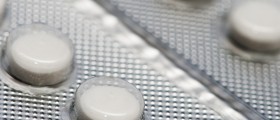
Hysterectomy
Removal of the reproductive organs among women is called hysterectomy, and it can be complete (involving the removal of the cervix and uterus), and partial (involving the removal of the uterus's upper parts). There is also a third option and it is radical hysterectomy, which involves the removal of upper vaginal parts, cervix, uterus and supportive tissue. This surgery is done for many reasons and some of them are cancer, fibroids, adhesion and so on.
Hormone Replacement Therapy
The HRT, or hormone replacement therapy, can decrease menopausal and sexual issues following hysterectomy. Many questions have been raised about this therapy in recent years, although it has been used in the past a lot. Due to this current state, many women tend to overlook hormone replacement therapy after doing hysterectomy and try some other options. This therapy involves the use of progestin and/or estrogen and it can be in a form of a cream or a pill. While progestin is made of the female hormone progesterone synthetically, estrogen is a female hormone. We can say that the studies done on the hormone replacement therapy are surrounded by mystery and controversy. They have even been ended earlier because the women involved in the research experienced great problems. So you can see why this therapy is losing popularity fast. Some say that benefits associated with this therapy are few, while risks are many. In order to see if this therapy is what you need, you will have to educate yourself about the benefits and risk and find a solution only then.
This therapy will surely decrease the problem of menopause and decrease the chances of osteoporosis, which causes fracture of the bones. It will also reduce the bad cholesterol, so we can say that there are only three benefits associated with this therapy and which can be gained from it. There is a belief that this therapy is associated with the droppings in numbers related to the colon cancer, but there is no proof of this at this moment. Hysterectomy will be followed by problems such as reduced sexual response/drive, virginal dryness, night sweats, mood swings and hot flashes, and HRT battles with these problems efficiently. Some of the medical problems that can arise due to the HRT include breast cancer, ovarian cancer, strokes, blood clots and heart attacks. Also, the therapy that uses only estrogen is connected with these complications more than the therapies that use the combination of estrogen and progestin. You should always consult your doctor before starting HRT because in some cases additional remedies are needed. Menopause problems can be reduced with proper nutrition and exercise plan.

















Your thoughts on this
Loading...